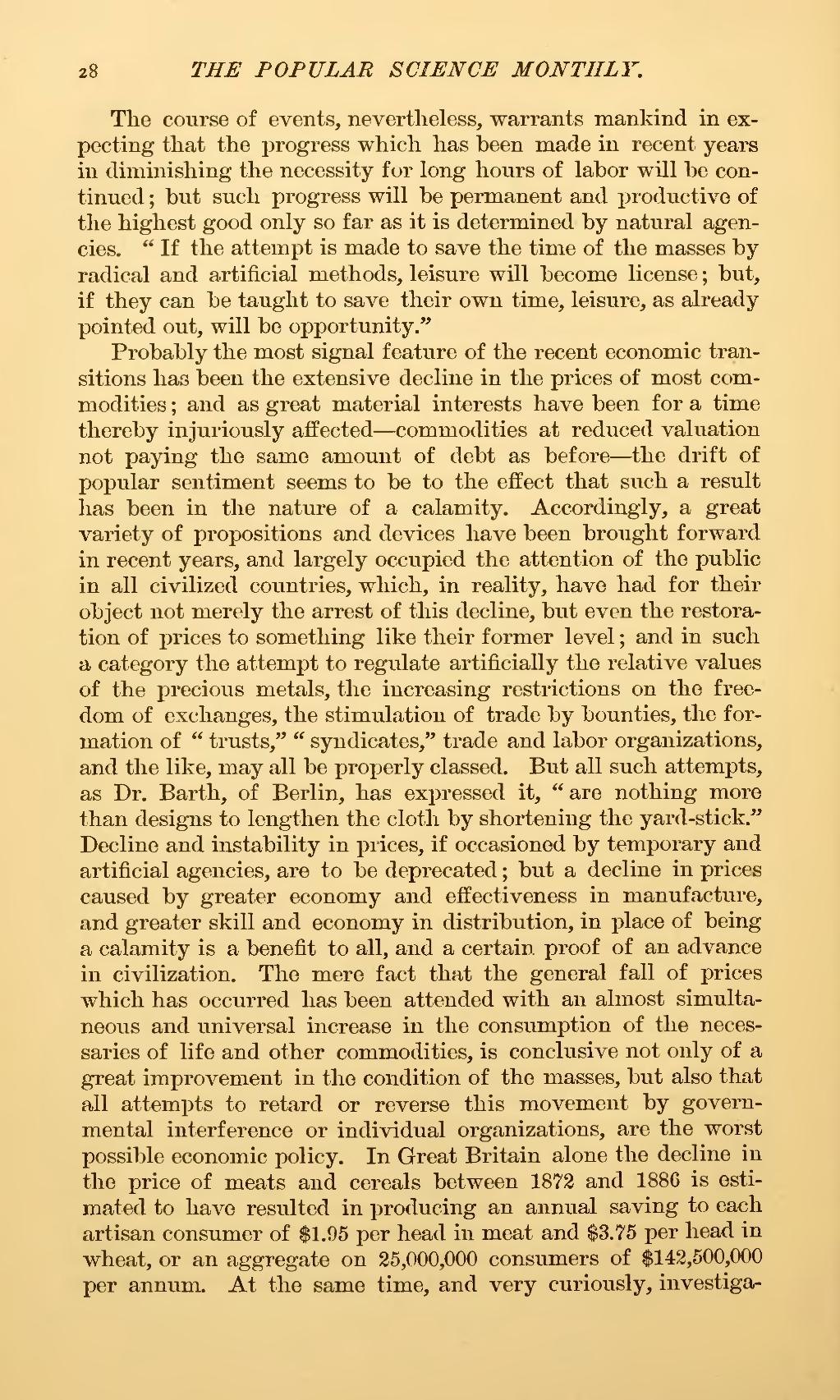The course of events, nevertheless, warrants mankind in expecting that the progress which has been made in recent years in diminishing the necessity for long hours of labor will be continued; but such progress will be permanent and productive of the highest good only so far as it is determined by natural agencies. "If the attempt is made to save the time of the masses by radical and artificial methods, leisure will become license; but, if they can be taught to save their own time, leisure, as already pointed out, will be opportunity."
Probably the most signal feature of the recent economic transitions has been the extensive decline in the prices of most commodities; and as great material interests have been for a time thereby injuriously affected—commodities at reduced valuation not paying the same amount of debt as before—the drift of popular sentiment seems to be to the effect that such a result has been in the nature of a calamity. Accordingly, a great variety of propositions and devices have been brought forward in recent years, and largely occupied the attention of the public in all civilized countries, which, in reality, have had for their object not merely the arrest of this decline, but even the restoration of prices to something like their former level; and in such a category the attempt to regulate artificially the relative values of the precious metals, the increasing restrictions on the freedom of exchanges, the stimulation of trade by bounties, the formation of "trusts," "syndicates," trade and labor organizations, and the like, may all be properly classed. But all such attempts, as Dr. Barth, of Berlin, has expressed it, "are nothing more than designs to lengthen the cloth by shortening the yard-stick." Decline and instability in prices, if occasioned by temporary and artificial agencies, are to be deprecated; but a decline in prices caused by greater economy and effectiveness in manufacture, and greater skill and economy in distribution, in place of being a calamity is a benefit to all, and a certain proof of an advance in civilization. The mere fact that the general fall of prices which has occurred has been attended with an almost simultaneous and universal increase in the consumption of the necessaries of life and other commodities, is conclusive not only of a great improvement in the condition of the masses, but also that all attempts to retard or reverse this movement by governmental interference or individual organizations, are the worst possible economic policy. In Great Britain alone the decline in the price of meats and cereals between 1872 and 1886 is estimated to have resulted in producing an annual saving to each artisan consumer of $1.95 per head in meat and $3.75 per head in wheat, or an aggregate on 35,000,000 consumers of $143,500,000 per annum. At the same time, and very curiously, investiga-
